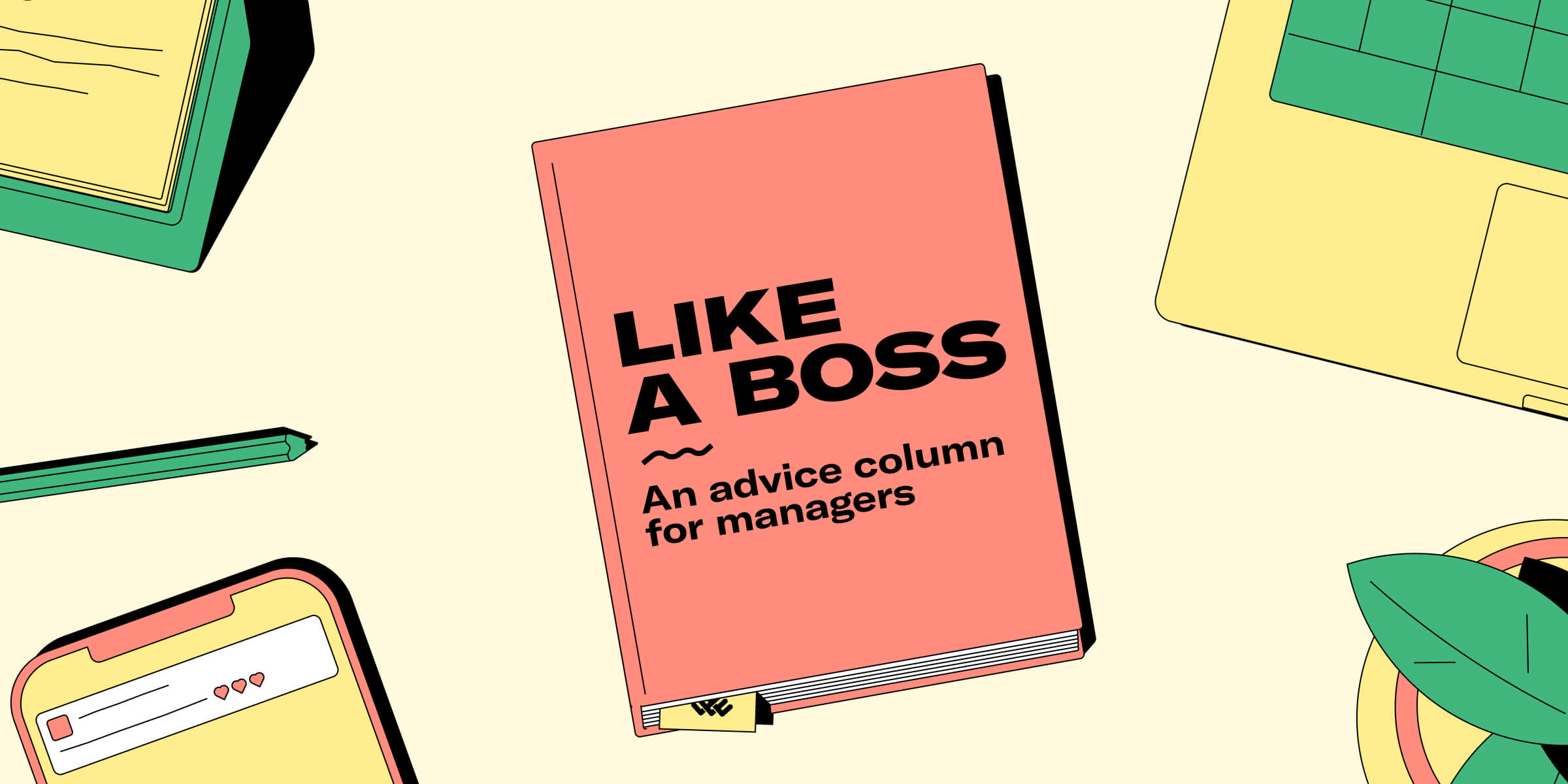Welcome to Lattice’s advice column for new managers, “Like a Boss.” I’m your host, Jennifer Romolini. I’m an editor, an author (of the career guide “Weird In a World That’s Not”), and, yes, a boss who’s been managing other humans for the past dozen or so years at companies both giant and tiny, at quick and dirty startups and multi-layered corporations, with remote and in-office teams ranging from five to 45. I’m also a speaker who talks about succeeding at work even when you feel like a freak. And, sometimes, I give advice, like right now.
Dear Boss,
Our company just announced we’re staying remote until summer of 2021, which means the small team I manage (there are 11 of us) will be collaborating and/or conducting synchronous work on Zoom calls for at least the next 7 months. Despite some minor technical glitches, meeting on Zoom was fine at first, but recently I feel like the entire enterprise has devolve. People show up late, they turn off their cameras, they’re eating when I need them to be engaging, they look (and seem!) sloppy. I’ve heard of managers dealing with poor Zoom etiquette in super-strict ways (for example, one company set a staff-wide Zoom dress code and now conducts “pants and shoes checks” at the beginning of each call), but I don’t want to do anything that extreme. How can I get our employees to act more professional when we meet virtually?
Yours,
Babysitting adults in Los Angeles
Dear Babysitting,
Hoo boy, “pants and shoes checks”?! Whomst among us would pass this most draconian of measures while juggling the demands of children, pets, noisy neighbors, WiFi outages, and sitting mere feet away from snack-packed refrigerators, not to mention our very own beds. In this current reality, I’m often lucky to show up to a Zoom with my shirt buttoned correctly, nevermind business-appropriate footwear and slacks (would I pass with shower shoes and sweat shorts?). We are living through unique and challenging times that require us as managers to throw away the old rulebooks and engage in flexible, compassionate leadership that meets the moment.
That being said, you’re right to want to nip a potentially out-of-control situation in the bud: Respect is respect. In any healthy organization, there have to be consequences for adult staffers who behave like unruly teens.
First, you should understand that, even if the behaviors you’ve laid out seem basic and obvious to you, they genuinely do not to members of your staff. Try not to fixate on this! Don’t demonize them for not understanding that choking on Cheetos while presenting strategy is a bad idea! Remember we’re all struggling to meet the demands of work while existing in our personal, non-work spaces — try not to take their bad Zoom habits personally.
Instead, be the grownup in the virtual room and lead. Proactively (potentially in partnership with HR) come up with a list of best practices for your Zoom meetings.
The virtual meeting etiquette checklist could go something like this:
- Show up on time.
- Keep your camera on and positioned in a way that the team can see you and your — live — face (not an avatar or another part of your body).
- Start muted and stay muted unless you’re speaking.
- If you’re presenting, eliminate as much background noise as you can.
- Don’t multitask: Whenever possible, avoid using meetings as an opportunity to catch up on snacks, emails, chats, or other work.
- Limit distractions. Set your phone to airplane mode, avoid apps and app notifications, turn off electronic devices that may or may not be set to play a Real Housewives marathon.
- Arrive at the meeting prepared (this way we don’t lose you for 5 minutes while you track down a pen).
- Be present. Engage in the conversation, offer ideas and suggestions, support your colleagues. Home or not, we’re still a team and, now more than maybe ever, we need your focused thoughts and ideas.
Present this list to your staff in the most tempered, non-threatening way you can. Whatever you decide to include, the list should be clear and direct, while also remaining generous and light-hearted. It should not include uncontrollable variables like children or pets nor place any demands about or requirements on employees’ workspace. Tell your team how grateful you are for their work and effort while reiterating the company’s expectations and the consequences if they’re not met. It may feel awkward to make such a list but know that by setting rules, structure, and boundaries you can help make employees feel safe; and safety is where productivity can thrive.
—
Lattice’s people management software helps you build feedback and recognition into your team's everyday routines. We bring employee engagement surveys, performance reviews, and employee career development together in one platform, giving your company an edge in retaining top talent. To learn how Lattice helps over 1,850 companies keep employee turnover at bay, watch a product tour or book a demo today.





.jpg)
